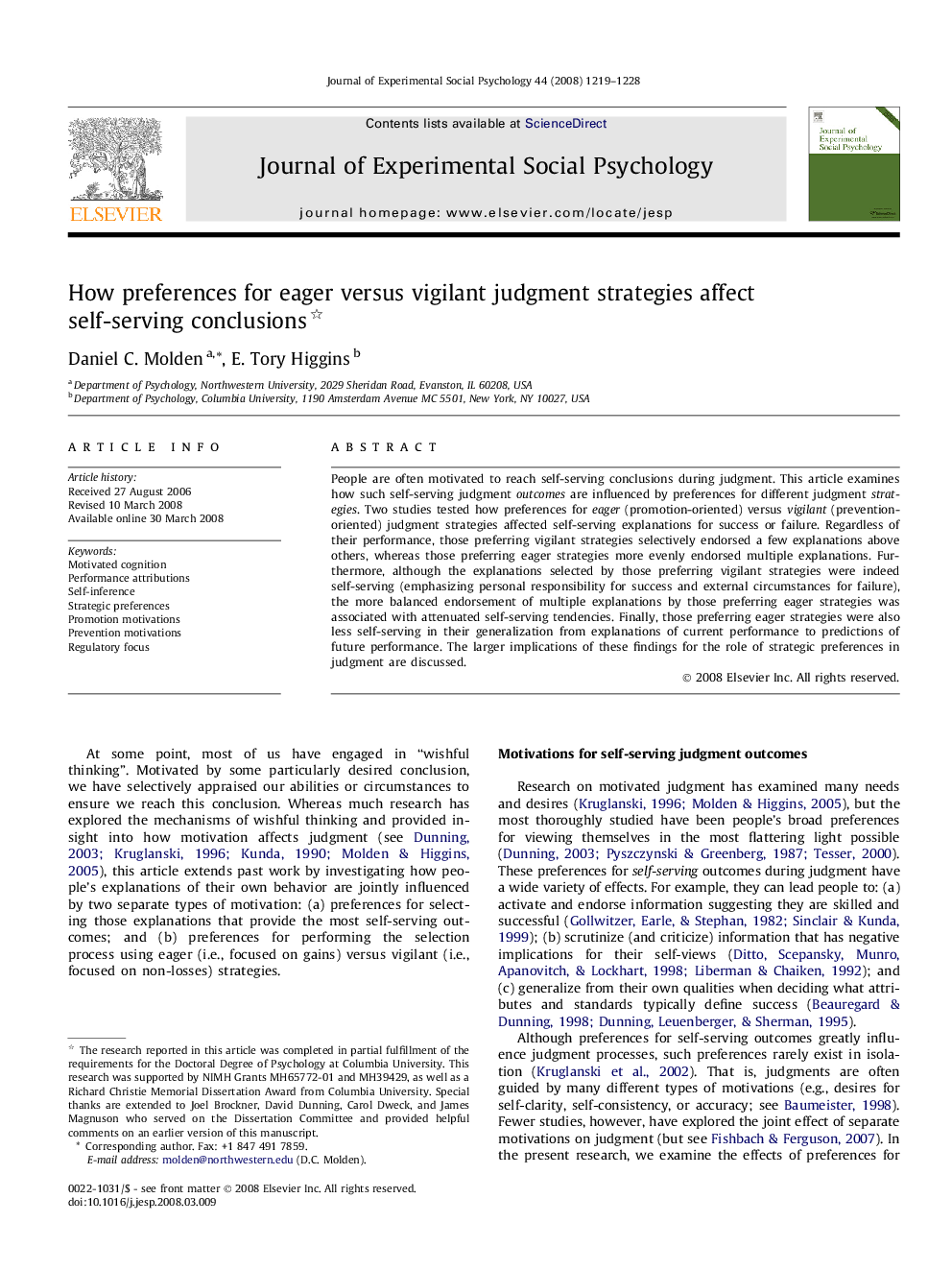| Article ID | Journal | Published Year | Pages | File Type |
|---|---|---|---|---|
| 947939 | Journal of Experimental Social Psychology | 2008 | 10 Pages |
People are often motivated to reach self-serving conclusions during judgment. This article examines how such self-serving judgment outcomes are influenced by preferences for different judgment strategies. Two studies tested how preferences for eager (promotion-oriented) versus vigilant (prevention-oriented) judgment strategies affected self-serving explanations for success or failure. Regardless of their performance, those preferring vigilant strategies selectively endorsed a few explanations above others, whereas those preferring eager strategies more evenly endorsed multiple explanations. Furthermore, although the explanations selected by those preferring vigilant strategies were indeed self-serving (emphasizing personal responsibility for success and external circumstances for failure), the more balanced endorsement of multiple explanations by those preferring eager strategies was associated with attenuated self-serving tendencies. Finally, those preferring eager strategies were also less self-serving in their generalization from explanations of current performance to predictions of future performance. The larger implications of these findings for the role of strategic preferences in judgment are discussed.
